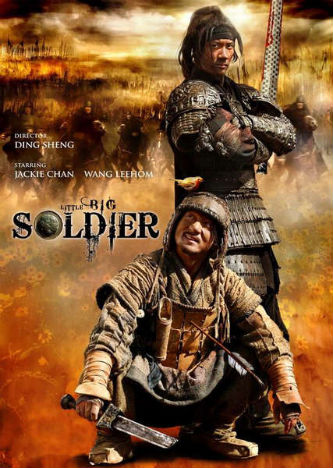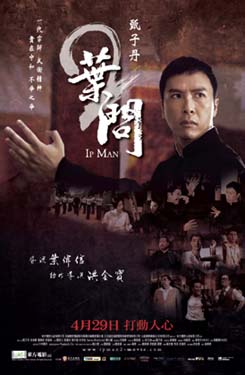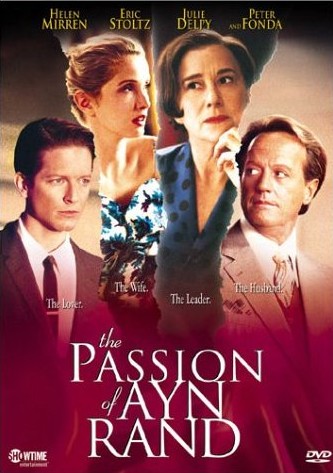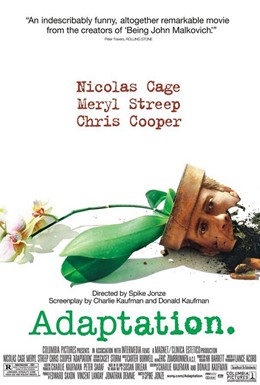
Like so many Chinese families these days, we ended up going to the cinema on the very first day of Chinese New Year. Both my wife and I were unenthusiastic as we now have very low expectations of Chinese films, especially whenever Hong Kong celebrities are involved. But we went along anyway as it was a family outing. The idea was to try to watch one of the specifically Chinese New Year themed movies but due to the unavailability of tickets, we had to settle for Little Big Soldier. In retrospect, it was easily the best out of all the films that we could have watched that day.
Despite starring Jackie Chan and being set in the Warring States period in China, Little Big Soldier is neither a martial arts film nor a war film. Though it has elements of both, it is at heart a buddy film in which two characters bond with each other over the course of the story. American-born Wang Lee Hom is competent but otherwise unremarkable in his role as an honorable general of aristocratic stock even if his spoken Mandarin is still noticeably accented. Jackie Chan, however, turns in a surprisingly fresh and entertaining performance as a canny footsoldier who does whatever is necessary to survive, even if means taking cowardly measures and resorting to underhanded tactics.
It’s surprising because I usually find Chan to be insufferably annoying. He basically plays the exact same character in all of his movies with his physical comedy and acrobatics skills as the primary draw. But in Little Big Soldier, he plays against type and while there he still gets to be the comedy and acrobatics guy, both elements are carefully doled out in measured rations as opposed to the usual practice of doling gags out by the spadeful and hoping that some will stick. Thus restrained, his character feels sympathetic, down to earth and realistic.
Another thing that struck me is how genuine and honest this film felt. So many Chinese period films now go for the epic feel. They want to show vast armies and sweeping vistas. They want to tell stories on a huge scale about larger than life characters doing heroic stuff. Little Big Soldier by contrast has a small cast and a very focused and tight vision that feels at odds with the heavily commercialized fare we’re used to from most period films. As my wife and I discussed, the big budgets and big name cast of the epic films probably limit directors to more conventional storylines designed for maximum mainstream appeal so they end up being commercialized dreck that don’t stand out.
Finally, I note with interest that the director Ding Sheng is a virtual unknown with only two entries to his credit on IMDB. Of course, if this had been an epic action movie from the conventional mould, the studio would have gotten a big name director to do it, but it must still have been a brave choice. I also note that this film was conceived by Jackie Chan over 20 years ago and he originally cast himself in the role of the young general instead of the old soldier. Probably no one thought it would make money and indeed I don’t think this film has received much attention or earned much money. That’s a pretty sad indictment of the state of the Chinese film industry right there.




